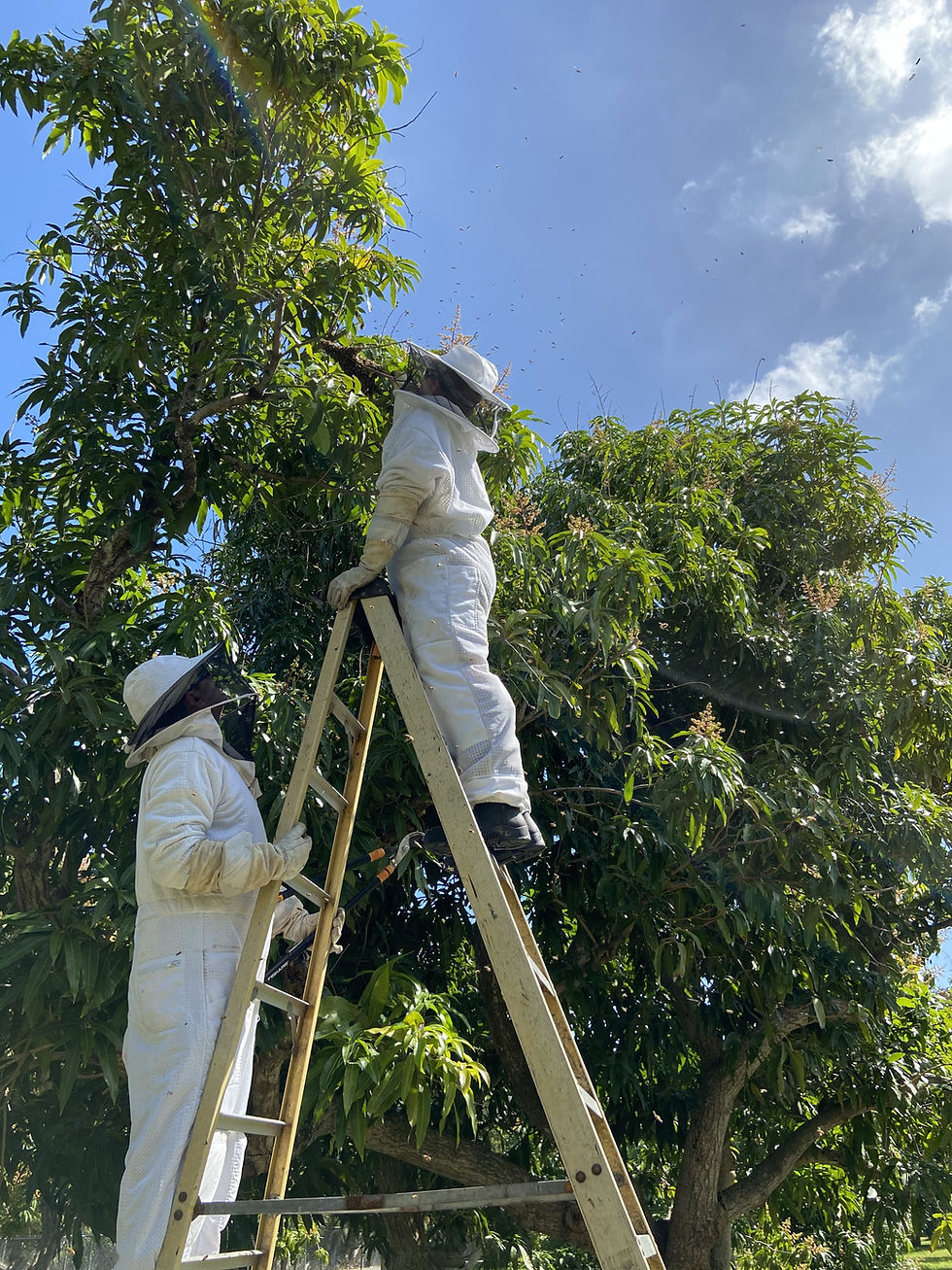Swarm Capture in the Mangos
- Kristen
- Jun 9, 2020
- 2 min read
A few months back, while the ladies were nestled in the mangos, we happened upon a swarm. As the weather warms a healthy queen bee will increase her egg laying in anticipation of the spring nectar flow. She wants her hive to be prepared and strong with lots of little workers! As this happens the bees (not the queen) will decide when the colony has hit max capacity and make efforts to split the group - some will stay and help raise a new queen, others will go with the original queen in a swarm. The group that has been designated to leave will sound the alarm, after scouting for a safe first place to land, then gather their old queen (who has been purposefully put on a diet by her workers to make sure she can fly) and hit the road!

This new colonies first stop is to a location that is not too far from their original hive. Scout bees will search the surrounding area for a suitable place to call home while the workers surround and shield their queen, this can take a few hours or a few days. Swarms in this stage are extremely docile since they don't have brood (eggs or larva) or food to protect from other bees, and is what these ladies were doing when we came across them.

We took over for the scout bees and placed them safely with their queen into a nuc - a mini hive - and once everyone was settled in and happy we added a few frames with drawn out wax honeycombs for them to move into. Once the queen started laying and the colony begins to grow we moved them into a full size hive.



If the bees would have kept on their way, the scouts would report back to the swarm when they decided on a suitable location (owl box, tree stump, wooden playhouse, etc.). Then they would help their old queen to their new digs and begin the process that they were doing in our nuc. As beekeepers we are able to provide them with a safe house and keep them from setting up shop in less desirable locations that most folks would not be too fond of!

If you ever happen upon a swarm of bees or a colony that has picked a location that is not the ideal setting reach out to a local beekeeping group. They will be more than happy to put you in touch with someone who will help relocate them!
_edited.png)





댓글